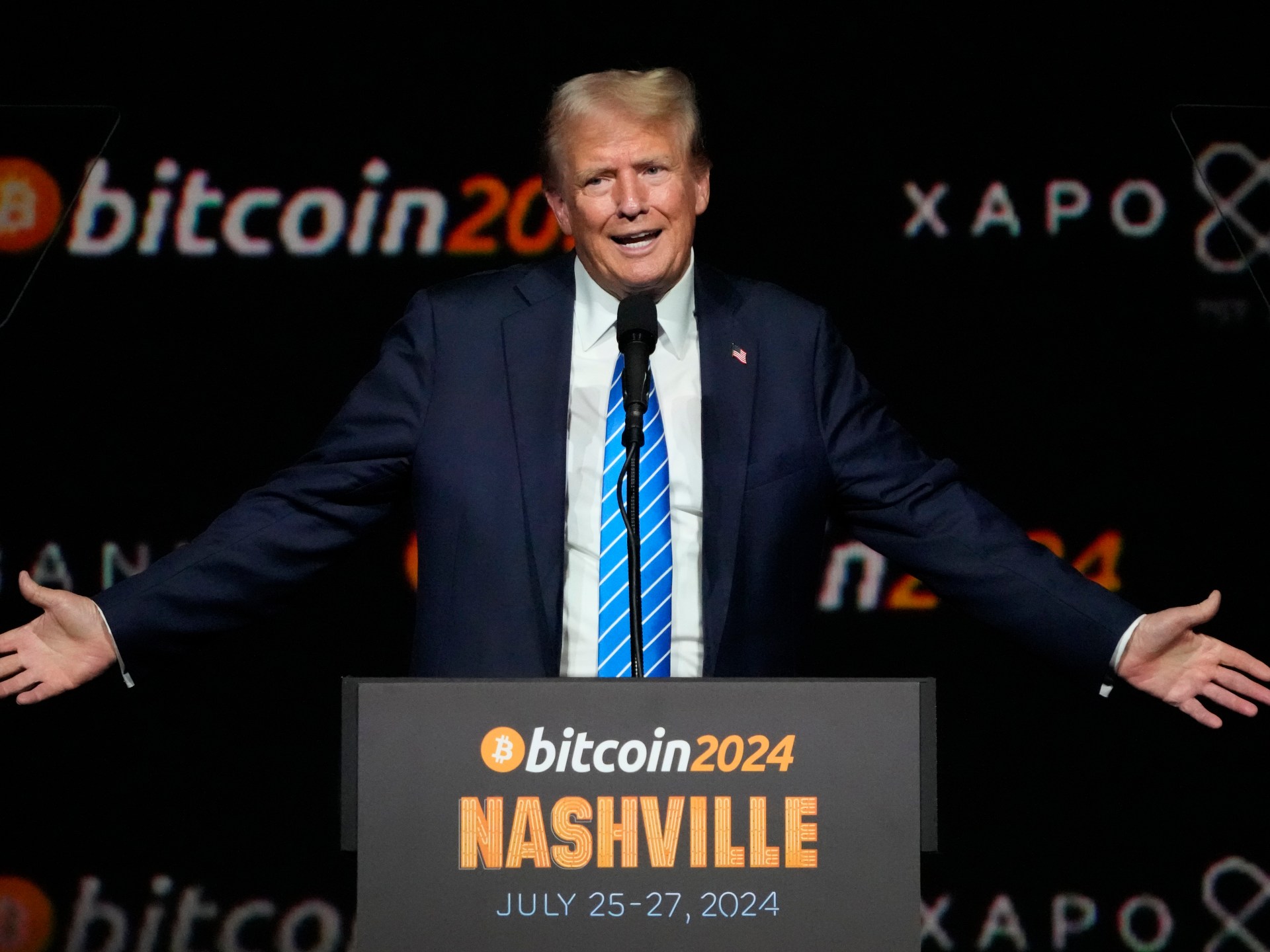The United States Department of Justice has announced it plans to pare back its investigations into cryptocurrency fraud, instead redirecting those resources towards immigration enforcement, terrorism and drug trafficking.
In a memo late on Monday, Deputy Attorney General Todd Blanche quoted President Donald Trump’s pledge to “end the regulatory weaponization” of the cryptocurrency industry.
“The Department of Justice is not a digital assets regulator,” Blanche wrote.
“The Justice Department will no longer pursue litigation or enforcement actions that have the effect of superimposing regulatory frameworks on digital assets.”
Instead, Blanche explained that Trump regulators in other departments would enforce financial law “outside the punitive criminal justice framework”.
“Prosecutors should not charge regulatory violations in cases involving digital assets,” Blanche wrote.
As part of the changes, the Justice Department will immediately dismantle its National Cryptocurrency Enforcement Team (NCET), which was launched in February 2022 under the administration of former President Joe Biden.
The team was designed to pursue cases of alleged fraud and illicit finance schemes.
In 2024, it announced a conviction in its first “cryptocurrency open-market manipulation case”. The suspect, Avraham Eisenberg, was found guilty of commodities fraud for artificially manipulating cryptocurrency prices. That, in turn, allowed him to amass $110m in cryptocurrency, according to prosecutors.
NCET has also led high-profile investigations against cryptocurrency firms like Binance and Tornado Cash, the latter of which was accused of laundering money for North Korea.
Trump has repeatedly slammed the Biden administration and has set about dismantling some of the former president’s signature policies, including NCET.
In Monday’s memo, Blanche echoed Trump by blaming the “prior administration” for pursuing “a reckless strategy of regulation by prosecution”.
Trump has sought to distance himself from Biden’s investigations into the largely unregulated cryptocurrency industry, instead positioning himself as a champion of digital currencies.
On January 23, three days after returning to the White House for a second term, Trump issued Executive Order 14178, entitled “Strengthening American leadership in digital finance technology”.
It revoked a Biden-era executive action pushing for “responsible development” of cryptocurrency and instead laid the groundwork for a “national digital asset stockpile”.
In the weeks since, Trump has made good on that pledge, announcing a national strategic reserve for cryptocurrency in early March. He named five currencies to the reserve — XRP, Cardano, Solana, Bitcoin and Ethereum — giving each a brief boost in value.
Trump also released his own “meme coin” and has business interests in the cryptocurrency firm World Liberty Financial (WLF), netting him and his family billions of dollars. Critics, however, have questioned the ethics of those ventures, given Trump’s outsized role in the global economy.
Calling himself the “crypto president”, Trump has nevertheless continued to make overtures to the digital currency industry.
For example, he held a meeting with cryptocurrency leaders at the White House on March 7, dubbed the “first-ever White House Digital Assets Summit”.
“Last year, I promised to make America the Bitcoin superpower of the world and the crypto capital of the planet, and we’re taking historic action to deliver on that promise,” Trump said at the meeting.
“This will be a virtual Fort Knox for digital gold to be housed within the United States Treasury. That’s a big thing,” he added.
He also drew a parallel between his legal woes and the investigations into the cryptocurrency industry. In 2023, Trump became the first president ever to be indicted on criminal charges, and in 2024, he was convicted of falsifying business documents in New York.
“They weaponised government against the entire industry,” Trump said of the Biden administration’s actions probing cryptocurrency firms.
“I know that feeling also, maybe better than you do. All of that will soon be over.”
Under Trump’s direction, the federal government has indeed dropped several investigations into cryptocurrency businesses.
The Securities and Exchange Commission (SEC), for instance, dropped its probe into Coinbase, while the Justice Department ended its investigation of the financial company Robinhood, which had been accused of mishandling crypto assets.
Monday’s memo did nevertheless say that some cryptocurrency-related investigations would remain a priority at the Justice Department.
Instead, Blanche said the department would narrow its scope to focus on illegal activity that causes “financial harm to digital asset investors and consumers” and supports cartels, drug traffickers and designated “terrorist” groups.
“For example, cartels and human trafficking and smuggling rings have increasingly turned to digital assets to fund their operations and launder the proceeds of their illicit businesses,” Blanche wrote.
While the department would continue to pursue cartels and criminal organisations that use digital currencies, Blanche specified that his prosecutors “will not pursue actions against the platforms that these enterprises utilize to conduct their illegal activities”.
